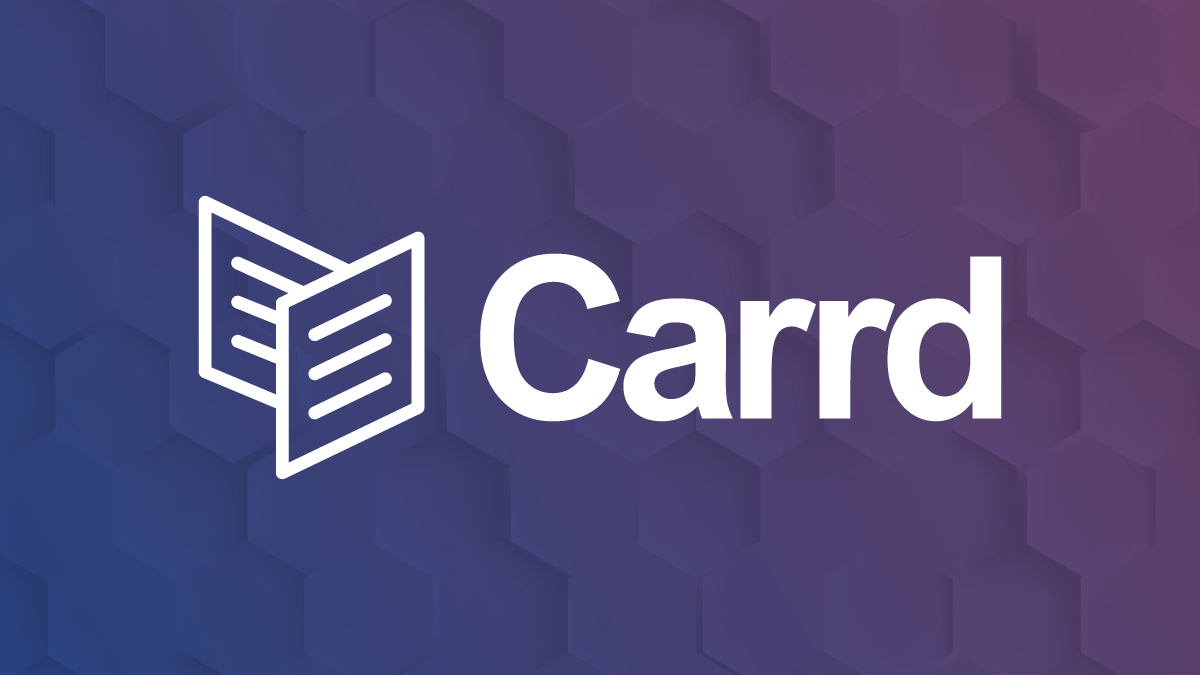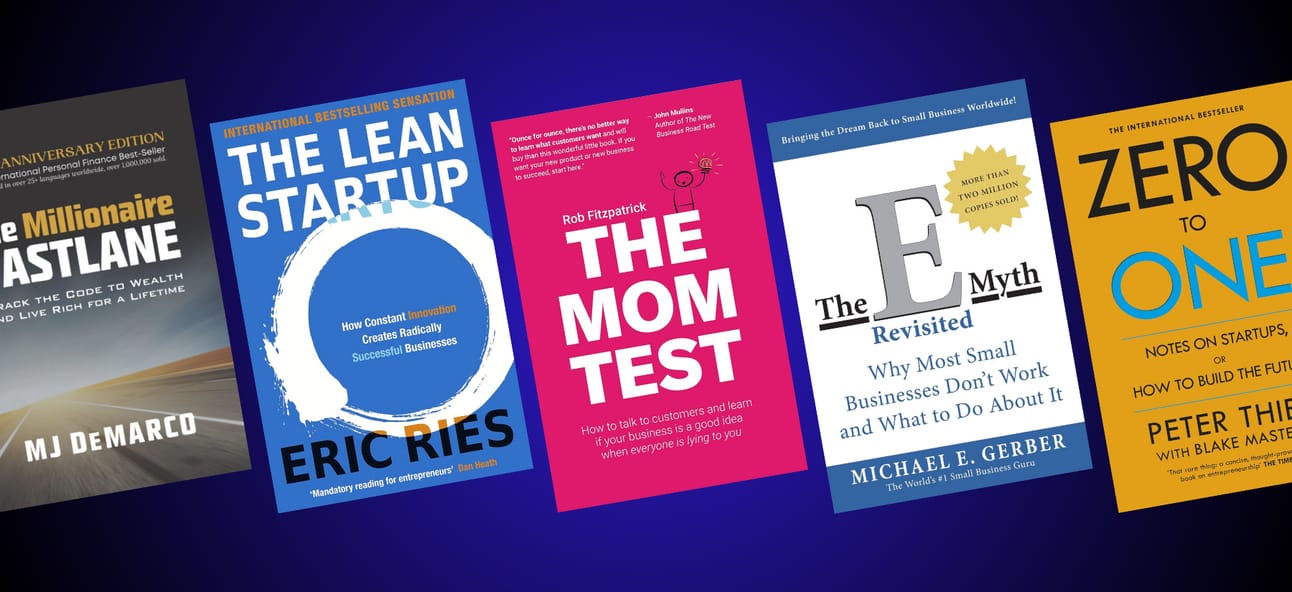🛠️ 75 million Baby Boomers are planning to retire by 2030—many own profitable service businesses with no one lined up to take over.
From local electricians to family-run dry cleaners, countless businesses are quietly shutting down despite strong customer bases and steady cash flow.
In this edition of Easy Startup Ideas, you’ll learn how to launch a lean marketplace that connects retiring business owners with aspiring entrepreneurs—preserving valuable brands while building your own cash-flowing platform in the process.
Featured Business - Carrd
Build one-page sites for pretty much anything.
Whether it's a personal profile, a landing page to capture emails, or something a bit more elaborate, Carrd has you covered. Simple, responsive, and yup — totally free.
Advertise your business or website here.
Today’s Idea
An online marketplace where Baby Boomer owners of small service businesses (plumbers, electricians, cleaners, landscapers, etc.) can list and sell their businesses to a new generation of entrepreneurs, rather than shutting them down.

Ideal Customer
Sellers: Baby Boomer service business owners (typically aged 58–75) who are approaching retirement but don’t have heirs or a succession plan.
Buyers: Aspiring entrepreneurs, tradespeople, or investors looking for an established, cash-flowing small business rather than starting from scratch.

Why It Will Succeed
Massive Demographic Trend: Over 10,000 Baby Boomers retire every day. Many own service businesses without a plan for succession.
Untapped Niche: Sites like Flippa and Empire Flippers focus on online businesses and SaaS startups, not local service companies.
Immediate Value for Buyers: Buyers acquire established brands, customer bases, and goodwill — and can immediately improve operations with AI and modern tools.
Emotional Selling Point: Sellers care about their legacy. They prefer passing their “life’s work” to someone rather than simply closing it down.
Low Competition: Traditional business brokers tend to focus on larger transactions ($500K+ valuations), leaving smaller service businesses underserved.

Getting Started and Building an MVP
Essentials Needed:
Simple, Trustworthy Marketplace Website: It must feel professional, secure, and easy to use for an older generation of sellers who may not be super tech-savvy.
Seller Listing Form: Collect clear information about the businesses.
Buyer Inquiry System: Allow buyers to express interest without needing to create a complicated profile.
Basic Lead Management: To keep track of who is contacting whom, and ensure no one gets lost in the process.
Initial Vetting Process: A basic check to make sure businesses listed are real and serious about selling (could be as simple as manual verification at first).
Recommended Tools and Resources:
Purpose | Tool/Platform | Notes |
|---|---|---|
Website/Marketplace | Purpose-built for service marketplaces, fast to deploy. | |
Website Builder (Alternative) | Great for beautiful custom design if you want more branding control. | |
CRM for Managing Leads | Keep track of buyer/seller conversations. | |
Forms and Intake | Easy to set up clean, friendly business intake forms. | |
Scheduling Calls | Let sellers book an onboarding call if needed. | |
Legal Documents | Offer sellers free sample sales agreements or LOI templates. |
Detailed Actionable First Steps
1. Market Research and Validation
Identify Prospects: Use Google Maps, Yelp, and local Chamber of Commerce directories to find service businesses like plumbing companies, cleaners, HVAC services, etc. in your region or nationwide.
Create a Simple Landing Page: In Webflow, build a basic landing page explaining the marketplace idea.
Capture Interest Early: Add two calls to action:
For Sellers: "Get a free valuation consultation" (even if it's just a basic chat for now).
For Buyers: "Get early access to service businesses for sale."
Initial Outreach: Personally email or call 20–50 local businesses with aging owners to offer a free listing on your soon-to-launch platform.
2. Build the Marketplace MVP
Set Up Sharetribe: Launch with Sharetribe Go (hosted version) — it has built-in messaging, listing creation, and payment systems if you need them later.
Customize the Listing Form: Ask for key details such as:
Business Type
Location
Years in Business
Number of Active Clients
Annual Revenue Range (optional at first)
Reason for Selling
Asking Price Range (optional at first)
Set Up Buyer Registration: Create simple buyer profiles with checkboxes for what industries and locations they are interested in.
Enable Direct Messaging: Keep it lightweight — buyers can message sellers through the platform to request more details.
3. Initial Operations
Manual Vetting: You personally review new listings before approving them to go live.
Broker Lite Model: Optionally offer to help facilitate first sales for free or a small fee to build trust and early testimonials.
Email List Management: Set up automatic email alerts when a new business in a buyer’s chosen category is listed.
4. Launch to First Users
Soft Launch: Invite your early list of sellers and buyers (even if it’s just 20–50 on each side) to try the marketplace.
Collect Feedback Rapidly: After each connection, ask: What was confusing? What could be easier?
Tweak and Iterate: Don’t try to automate everything yet — it's fine if parts of the marketplace are manual at first as you learn what users really need.

Required Reading for Aspiring Entrepreneurs
If you're serious about starting something — or growing what you've already got — these are the books that’ll actually help.
No gurus. No cringe. Just real takeaways.

Monetization Strategies
Simple Early-Stage Monetization:
Listing Fees: Charge sellers a small fee ($49–$199) to list their business.
Success Fees: If a deal closes through your platform, charge a flat fee (e.g., $1,000) or a percentage (e.g., 5% of sale price).
Featured Listings: Offer premium placement or featured spots on the home page for extra visibility.
Lead Subscription: Charge buyers for early access to new listings before they are publicly available.
Advisory Packages: Partner with freelance consultants to offer optional paid services: business valuations, contract templates, closing guidance.
Later-Stage Monetization:
Escrow Services: Partner with an escrow provider and charge a handling fee for transactions.
Seller Financing Services: Offer tools that help sellers and buyers set up seller financing agreements safely.
Marketplace Insurance: Partner with insurance providers to offer business insurance packages during transfers.

Marketing Strategies
Buyer Side:
Community Building: Create a free Facebook Group or Slack Community for “New Service Business Owners” to discuss opportunities.
SEO Blog Content: Write SEO-optimized guides like “How to Buy a Small Business Without Breaking the Bank” or “Top Mistakes When Taking Over a Service Business.”
Podcast Appearances: Get interviewed on small business, entrepreneurship, and retirement planning podcasts.
Seller Side:
Partnerships: Partner with retirement planners, accountants, and trade associations who work with aging business owners.
Direct Outreach: Send personal letters (yes, physical mail) to local businesses you find on Google Maps offering a free consultation.
Industry Events: Attend or sponsor trade shows and retirement planning events.
Example Marketing Channels:
Google Ads targeting “sell my plumbing business” or “retirement business sale”.
LinkedIn Ads targeting business owners aged 55+.
Facebook Retargeting Ads after someone visits the marketplace.

Expanding and Improving
AI-Powered Business Valuation: Build a simple tool that estimates a business’s worth based on inputs.
Virtual Walkthroughs: Allow sellers to upload photos/videos of the business to make it easier for remote buyers.
Matching Algorithm: Match buyers and sellers based on industry, location, business size, etc.
Document Automation: Automate NDAs, LOIs (Letters of Intent), and basic sale agreements to save time for both parties.
Educational Content Hub: Create free or low-cost courses about buying, growing, and modernizing service businesses.

Thanks for checking out another edition of Easy Startup Ideas!
If you have any comments or suggestions on how to improve this newsletter, please let us know by commenting below.
As an Amazon Associate and affiliate of various partnership programs, the owner of this publication may receive commissions to linked products or services in this newsletter at no additional expense to the reader.

